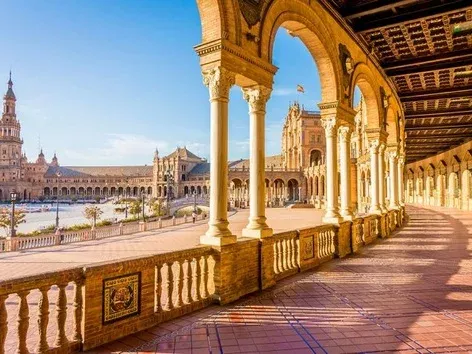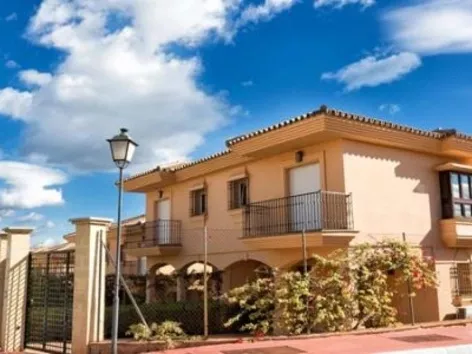New immigration reform in Spain 2025: all changes in law RD 1155/2024 for migrants

Important changes to Spain's migration law come into effect in May 2025. Simplifying visas, work, family reunification and a "second life" for migrants. Find out what changes expats in Spain can expect
The update of Spanish migration legislation in May 2025 will bring significant changes that will simplify the legalization and employment of foreigners in the country. This reform will affect students, families of Spanish citizens and international students. The new rules will come into force today, May 20, 2025.
We have gathered all the important and relevant information that foreigners need to know about the New Immigration Regulation (RD 1155/2024) of Spain in this article.
Planning a trip abroad? Choose a reliable health insurance policy on the Visit World portal.
Main changes in Spanish migration legislation in 2025
1. Changes in visa legislation
- Extension of the validity of the job search visa: now it is valid for 1 year instead of 3 months, which reduces the risk of losing legal status.
- Simplified procedure for changing the type of residence: from now on, you do not need to leave the country to obtain a long-term residence permit after a temporary one.
- Clarity in the names and terms of visas: the new text creates a specific name for visas, clarifying the scheme, requirements and procedures. All initial visa permits will be valid for 1 year and extensions for 4.
- Reduction of the minimum period of stay to apply for a residence permit: from 3 to 2 years, with simplified requirements. In addition, the requirements have become more flexible and those who have a permit will be able to work both as employees and as self-employed from the first moment.
2. Changes in labor law
- Merging of the statuses “social” and “labor” into “social-labor” (arraigo sociolaboral).
- Authorization for multiple short-term contracts: instead of a single labor contract, it is now possible to grant multiple short-term contracts, for example for seasonal work.
- Reduction of the maximum number of working hours: from 30 to 20 hours per week for some categories.
- Possibility to start work without an initial work permit: most of the permits introduced in the new reform allow individuals to start work immediately, without having to directly request an initial work permit as an employee.
- Special permits for seasonal work have been introduced: with a simplified recruitment process.
- Improved protection of workers' rights: they must have specific and written information (in a language they understand) about working conditions, accommodation and other costs.
3. Family reunification (regroupement familial Espagne 2025)
Spanish citizens can invite first-degree relatives (partners, children under 26, parents, siblings).
Relatives are entitled to enter with a work permit.
Proof of financial support for the last 6 months is required, with a minimum income of around €1,050 for two. It is recommended to have €1,200-1,500.
The possibility of applying for reunification from Spanish territory has also been introduced, which will reduce bureaucracy.
4. Students
Foreign students studying in vocational or higher education institutions will be able to work up to 30 hours a week. The job does not have to be related to their specialty.
The requirements and obligations of educational centers have been strengthened, which has given students greater protection of their rights.
5. A “second chance” mechanism to restore legal status
Migrants who have lost their residence permit for administrative reasons (missing deadlines, staying abroad, errors in documents) can restore their status.
Importantly, this does not apply to cases related to violations of public order, security or health. This mechanism, according to the government, will help people get out of the “gray zone” of illegality.
6. Temporary permits for those who have been denied refugee status
Migrants whose asylum applications have been rejected but who were residing in Spain when the reform came into force will be able to obtain temporary work and residence permits.
When will the new immigration reform in Spain come into force?
The new rules published in the Spanish Official Gazette (BOE) will come into force on May 20, 2025.
The first work permits under the new procedure will be issued in the summer of 2025.
How will the immigration reform affect the Spanish economy?
The reform is expected to help legalize up to 300,000 migrants annually over three years. This is important for the Spanish economy, where migrants make up more than 13% of those registered with the social security system.
Changes to Spanish migration legislation open up new opportunities – but also require accuracy in paperwork. If you are planning to obtain a residence permit, find a job, reunite with your family or restore your legal status, get advice from professional specialists at Visit World.
Contact trusted migration lawyers now and get an individual consultation online. Your legalization is in safe hands!
Let us remind you! A new law came into effect in Spain on December 2, 2024, requiring tourists to share personal information when checking into a hotel or renting a car in Spain. The main goal of this measure is to increase the level of security in the country, but the new rules have sparked some debate. We have already told you what personal information tourists in Spain will now have to provide and how this will affect privacy.
Products from Visit World for a comfortable trip:
Checklist for obtaining a visa and necessary documents in Spain;
Legal advice on immigration to Spain;
Travel insurance for foreigners in Spain;
Medical insurance all over the world.
We monitor the accuracy and relevance of our information, so if you notice any errors or inconsistencies, please contact our hotline.
Frequantly
asked questions
What are the new rules for moving to Spain?
What is the new tourism law in Spain?
Which country is the easiest to get a residence permit in Europe without investment?
Recommended articles
1 min
Residence permit
How to get a residence permit in Spain: 9 most popular ways for foreigners
Moving to Spain for permanent residence attracts thousands of migrants from all over the world. And this is not surprising, because this country can boast of the absence of corruption at the household level, a developed medical and educational system, as well as high social protection of the population. Learn more about the possibilities and grounds for obtaining a residence permit for migrants in Spain
07 May. 2025
More details1 min
Travels
Spain is one of the most popular tourist countries in Europe, attracting millions of travelers every year. Find out: what are the entry rules for EU citizens and visa-free countries, what documents are required to obtain a Schengen visa, current entry rules and much more useful information
02 May. 2025
More details2 min
Expats
Non-lucrative Spanish visa in 2025: criteria, requirements and common mistakes when designing
Expats from different parts of the world are attracted to the Spanish way of life. Any foreigner who has a sufficient level of financial support can move to the country. Find out what you need to apply for a non-profit visa to Spain and the most common mistakes applicants make
17 Jan. 2025
More details2 min
Expats
How to rent accommodation in Spain: where to look, rental features and useful tips for foreigners
Renting a property in Spain can be an exciting but also a challenging process, so it's important to know how to approach it correctly. Find out where to look for property, what resources to use, how to prepare the necessary documents, what to consider before signing a lease, what legal aspects are important, and what to look for when choosing a property and concluding a contract
13 Apr. 2025
More detailsAll materials and articles are owned by VisitWorld.Today and are protected by international intellectual property regulations. When using materials, approval from VisitWorld.Today is required.
